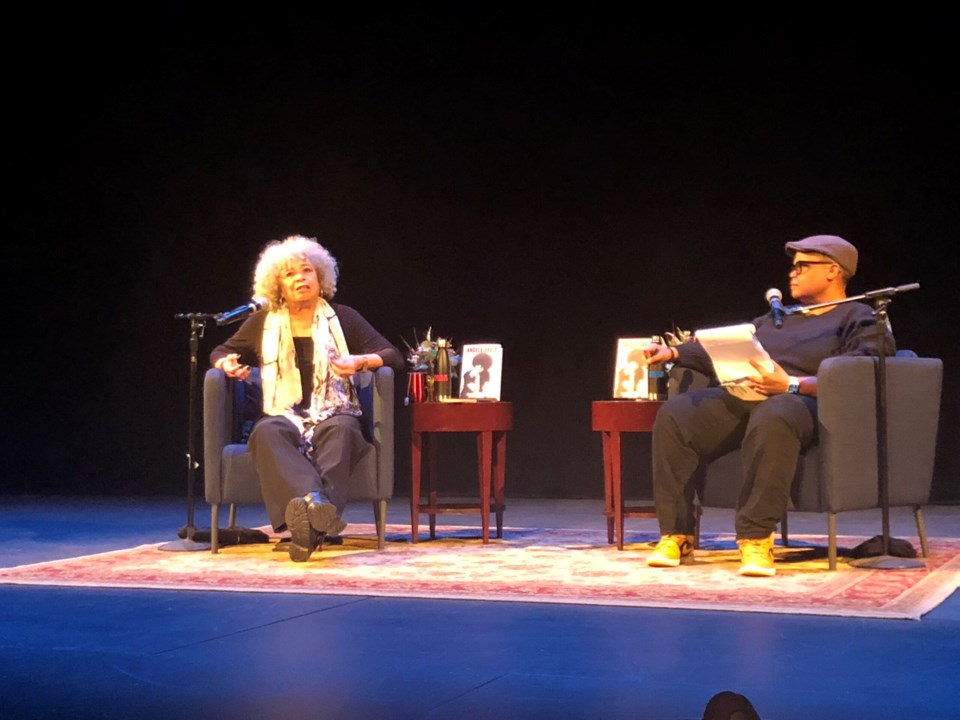Angela Y. Davis, the iconic activist at the center of the Black Liberation, feminist, queer and prison abolitionist movements, was welcomed for an on-stage conversation with political scholar Keeanga-Yamahtta Taylor at the Brooklyn Academy of Music in Fort Greene on Friday.
The event was more than just a book talk celebrating the reissuing of Davis' 1974 memoir, "An Autobiography;" it was a homecoming: Davis lived in Bed-Stuy as a high schooler, which is where she got her start in organizing.
And, despite the packed Harvey Theater house, the conversation was intimate.
"I am excited to be publishing this new edition of my autobiography with Haymarket Books at a time when so many are making collective demands for radical change and are seeking a deeper understanding of the social movements of the past," Davis said.
"It was wonderful to feel the warmth of the audience, I couldn't really see anyone, because there were no lights on the audience, but I really felt it," Davis told BK Reader.
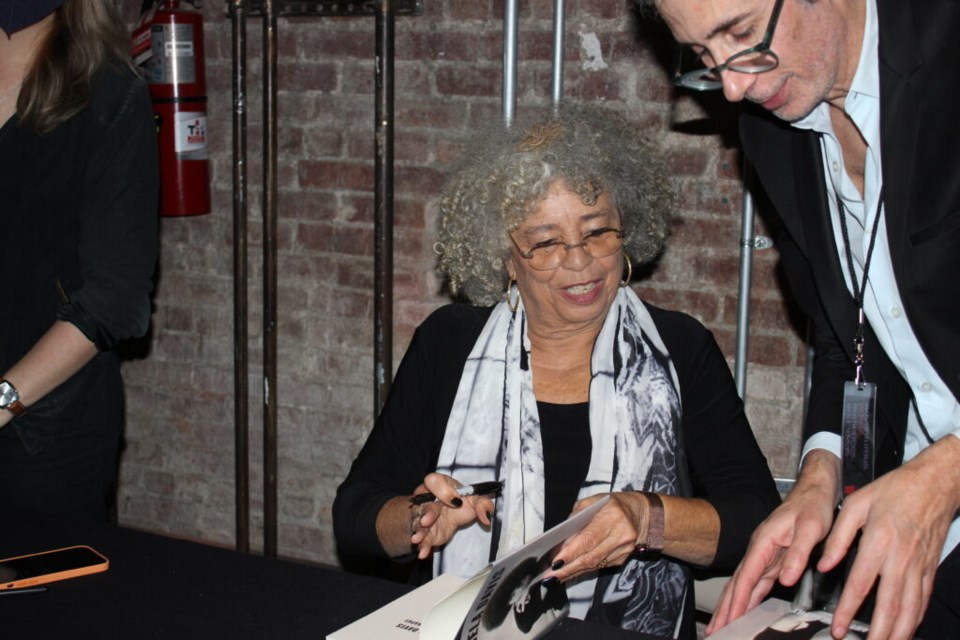
At the talkback, she recounted her childhood in Jim Crow Alabama; her political activity in a New York high school; and her work with the U.S. Communist Party and the Black Panther Party.
She shared with the audience her experience teaching at the University of California Los Angeles, being on the FBI's list of the 10 Most Wanted Fugitives, and her work for intersectional abolitionist feminism today.
"It was enough inspiration and motivation for a year's worth of any kind of organizing activity or storytelling," Keshia Hannam, an audience member who lives in Bed-Stuy, said.
"I feel like she embodies the kind of consciousness that modern progressives and people seeking any kind of spiritual or social liberation, she embodies it, and it is tangible. It's very rare."
The event was co-presented by BAM and Greenlight Bookstore, in association with Haymarket Books, with collaboration from The New York Review of Books.
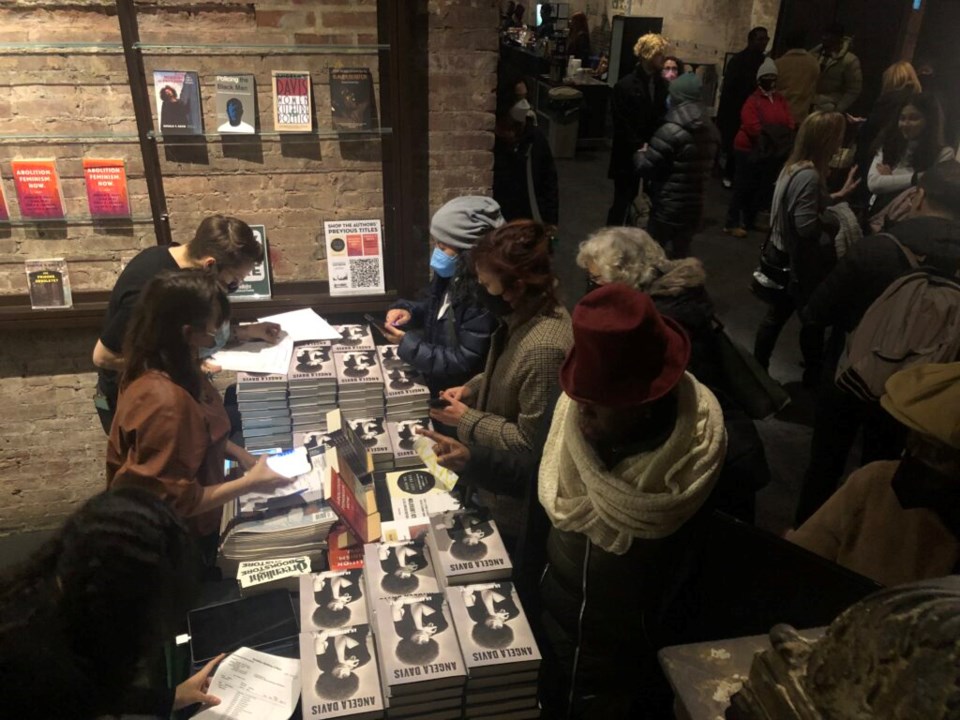
"[Davis] speaks a lot about community and the collective, and BAM doesn't just think in 'audience' it really thinks in 'community,'" said Coco Killingsworth, vice president of creative social impact at BAM.
"Art is to be experienced not just by individual ticket buyers, but by a collective of people that come together to be moved and inspired by the work we present on our stages. We're also at a moment of really centering how art can be transformative and supportive and healing for our audience, and [her] work really speaks to that."
During the book talk, Davis spoke about Mayor Eric Adams and his new plan to have police involuntarily hospitalize people having mental illness episodes in public.
"The police are not trained to help people, they're trained in violence," Davis said.
After the book talk, Hundreds of audience members lined up to get their books signed by Davis.
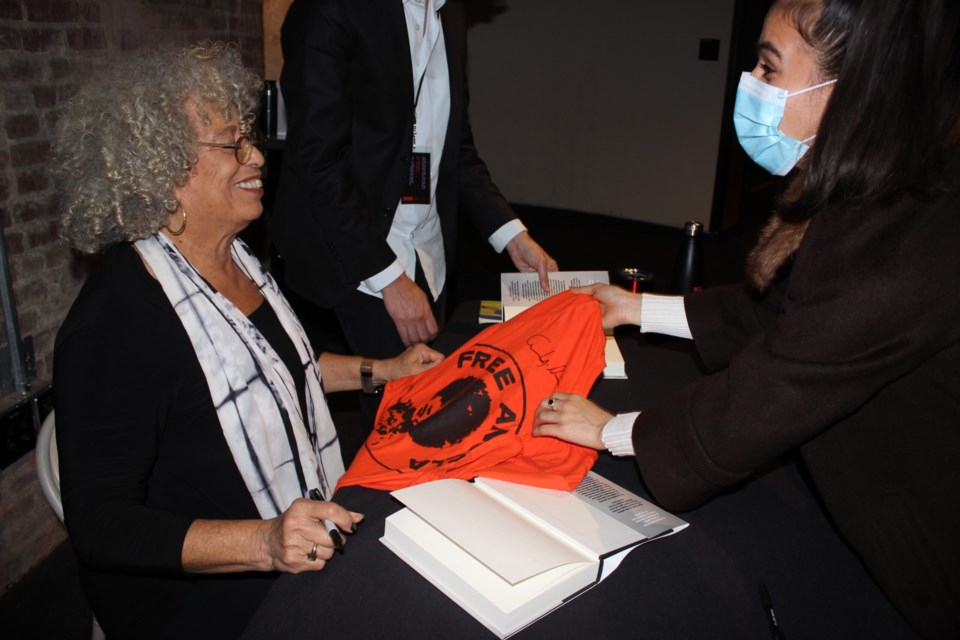
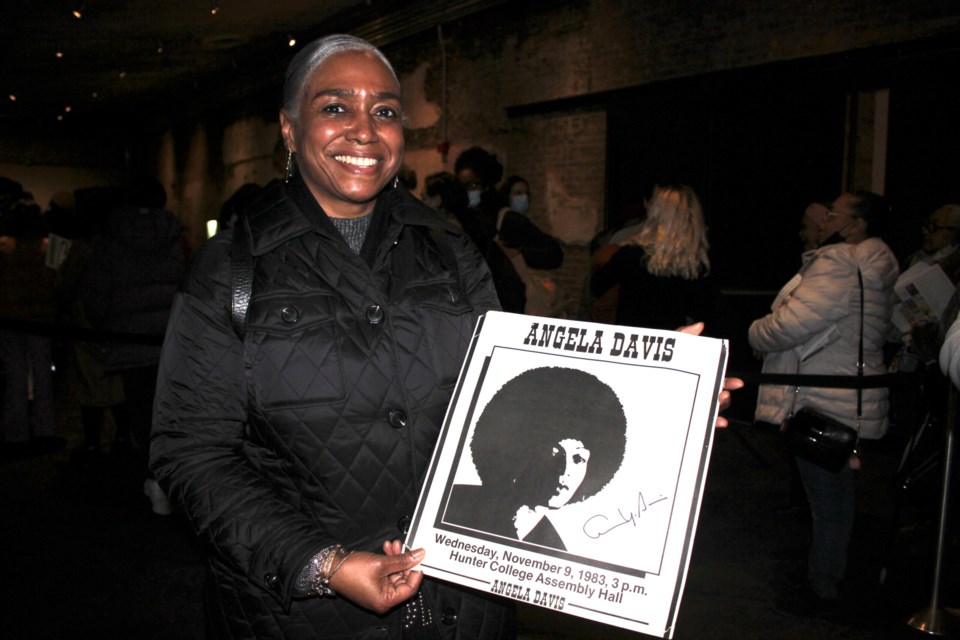
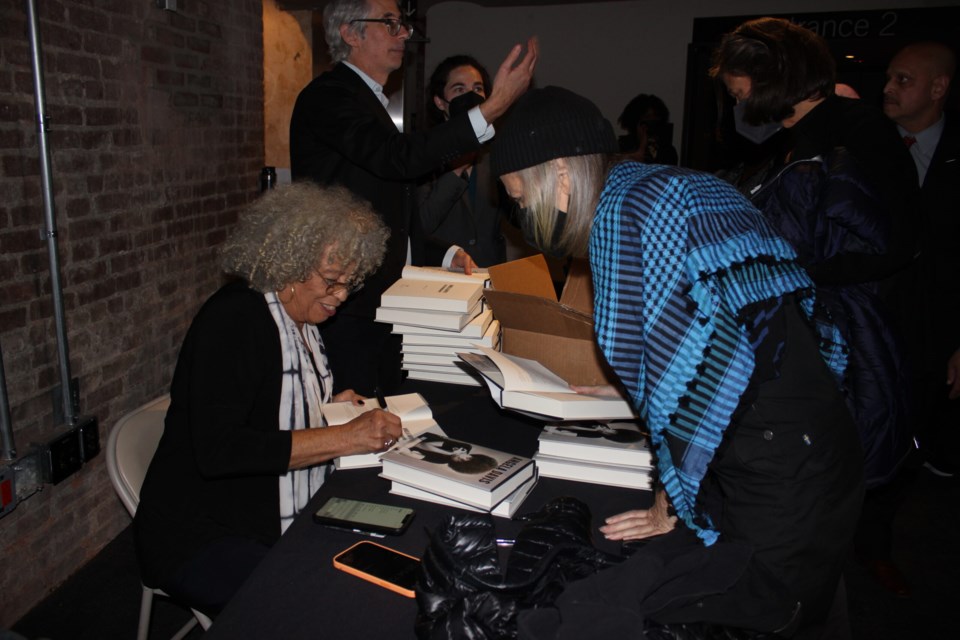
"[The talk] was amazing," said audience member Lisa Steadwell, an administrative assistant at Hunter College. "People say she's a radical, but she's just trying to make change."
When Taylor asked Davis how she stays committed to the movement after all these years, despite several state-backed attempts to suppress her, Davis had a simple answer: "Well, what else was I supposed to do?" the activist said.
Davis added that she won't see prison abolition and Black Liberation in her lifetime but she is working on paving the way for the next generation, as her ancestors did before her.
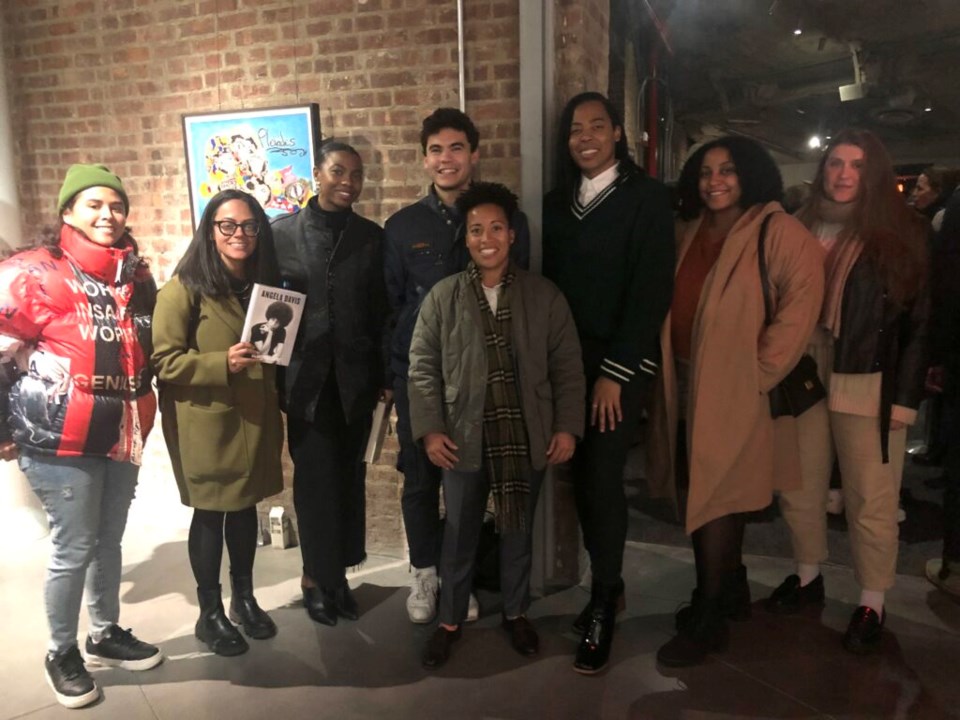
For Crystal Hudson, the council member who represents district 35 in Brooklyn, the night felt like a full-circle moment, and she called Davis living Black history:
"So much of my Black Agenda has been inspired by all of the fights that have come before me, before us, and so its on people like Angela Davis' shoulders that I stand and continue the work."

